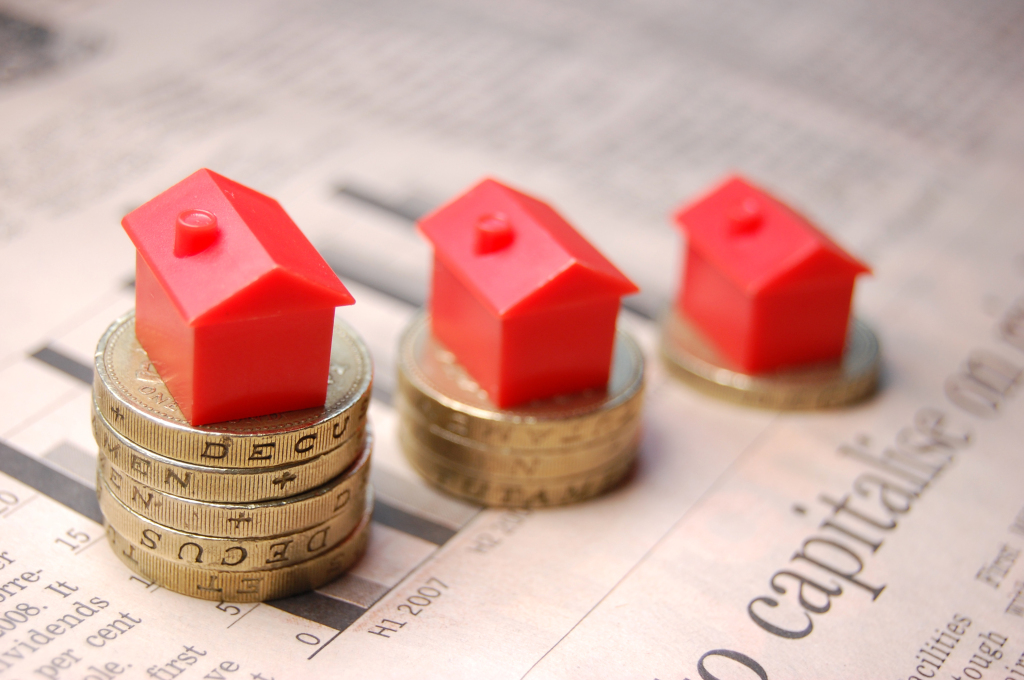Just like in Monopoly, you have to be holding the investment property to earn an income from it. If you plan to sell quick, there’s a good chance you’ll lose.
I’ve got a great example of this in practice for you.
Yesterday I got a message from a real estate agent on the Gold Coast asking if we wanted to sell our property. We own a townhouse there. The agent just sold one in our block for $450k within 48 hours and has buyers who missed out ready to go. Our property has a bigger yard and is a better location in the complex, so we might get even more.
We bought the place in mid 2008 – eight years ago – for $370k. Looks like a good deal, right?
Not so fast. There’s more this story.
The difference three years can make
Three years ago, it was worth around $330k. That’s what my neighbour, coincidentally a high school friend of mine, paid for the mirror-image of our place in 2013. Our properties have a shared wall.
If we’d sold then, we’d have lost at least $40k – more like $55k with entry and exit costs.
We didn’t. We decided not to take the capital loss. We persevered and kept renting it out. It earned $380 a week and was positively geared, so we weren’t losing if we held. We thought we’d try waiting the market out.
Slow and steady improvements
I’ve had two valuations done since then, each time when a tenant has left and it would be an opportune time to consider listing for sale:
- Two years ago – recommended list price was $399k.
- Six months ago – recommended list price was $400k
If we sold at $400k, we’d probably break even but barely make a capital profit. Certainly better than if we’d tried to sell in 2013, but not by much. Rent was up to $420 a week by the most recent valuation, so now we were making a steady profit from the property.
It’s all in the timing
Imagine if we’d been in a position where we HAD to sell three years ago. We’d probably have taken $325k, been hit with a capital loss and regretted the whole damn thing. No doubt we would have sworn off investing in property as a terrible idea and vow never to do it again.
Same goes if we’d had to sell six months ago and barely made a capital return. We’d be lamenting lost opportunity to get a much higher return, and again would probably avoid property in the future.
Because we didn’t, we now have a property with a few hundred thousand dollars in equity, a positive cash flow that pays us, and the market is on the up – quite significantly if the recent $50k jump in price is real.=
This is why people get burned in property – they end up in a position where they have to sell, so they have to take what the market will pay. It’s not fun being over a barrel.
Fortunately we’re not in that position. A positively geared property means we don’t have to put our hands in our pockets, so the only question is whether we could do better with our capital. At the moment, it’s rented for $450 a week and was snapped up as soon as we put it on the market. So, I’d expect prices to at least hold and maybe even continue to go up in the lead up to the 2018 Commonwealth Games being held on the Gold Coast.
What you don’t see: Three years of wondering
Here’s the rub: for three years, we’ve been ummm-ing and ahhhh-ing about whether to sell. Did we just pick a dud property, or a dud market? Should we cut our losses and take what we can salvage?
When I say ‘we’, I really mean my husband. He dislikes debt, and he’s not really a fan of property investing if he’s frank about it. I don’t think it’s cost him sleep – I don’t see any open eyes when I’ve been up feeding our bub – but he’s been unhappy. I’m happy to wait while it’s not costing anything as I think the fundamentals are solid. But hubby is not so easily satisfied.
Until today, when I called him to tell him about the agent. Now he’s grinning.
What can you learn from our experience?
Here’s what I hope you take away from this:
- Don’t buy with the expectation of selling quickly and making a profit. Expect – and plan – to have the property for 10+ years.
- Positively geared property is best. If it was negatively geared and something had gone wrong, like we’d lost our jobs, we would have had to sell regardless of price. Pay down that debt.
- You must be prepared to wait out the periods of doubt when the market is sluggish. Have a plan with trigger prices and times so you don’t lose sleep.
- Hold. It’s that simple.
What comes next?
Download our Free Financial Resources
Find the right Money School Course for you
Get the Book: Money School, Become Financially Independent and Reclaim Your Life, Lacey Filipich
Got a question: Contact Us
Lacey Filipich is the co-founder and director of Money School. She helps parents raise financially savvy kids and helps adults get on top of their finances. Connect with her on LinkedIn and follow the Money School Facebook page to learn more.

